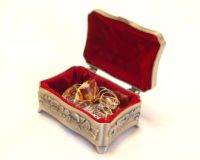Megillah 27
Today’s daf continues the Gemara’s discussion of the limits imposed on the sale of sacred items. As we saw yesterday, there’s a hierarchy of holiness surrounding synagogues, beginning with the ground on which a synagogue stands and proceeding right up to the Torah scroll itself, the pinnacle of holy items.


